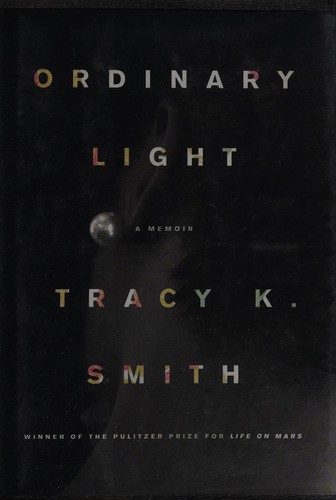4thace reviewed Ordinary light by Tracy K. Smith
Review of 'Ordinary light' on 'Goodreads'
5 stars
This memoir covers the early childhood through college years growing up in Northern California. There are microaggressions based on race, a strong influence of the Black church instilled in all the children, the difficulty of connecting closely with a mother and father as the youngest of five children, a middle class upbringing with slight mortifying brushes with government handout programs but without real poverty, the need to prove herself intellectually and sexually outside of the family nest in high school and college, and finally a shattering encounter with illness and death. The author is gifted with a capacity for keen observation to depict episodes which work together to suggest a fully rounded description of her formation without having to state the significance of each influence explicitly. It was interesting to find out how she came to poetry in the first place through a relationship which ended up taking on some …
This memoir covers the early childhood through college years growing up in Northern California. There are microaggressions based on race, a strong influence of the Black church instilled in all the children, the difficulty of connecting closely with a mother and father as the youngest of five children, a middle class upbringing with slight mortifying brushes with government handout programs but without real poverty, the need to prove herself intellectually and sexually outside of the family nest in high school and college, and finally a shattering encounter with illness and death. The author is gifted with a capacity for keen observation to depict episodes which work together to suggest a fully rounded description of her formation without having to state the significance of each influence explicitly. It was interesting to find out how she came to poetry in the first place through a relationship which ended up taking on some fraught associations, coinciding with the beginning of how she differentiated herself from her parents and their philosophy.
This was not what most people would consider an explosive autobiography, the kind that includes enough lurid details to attract attention. The people who come off as villains are not given names and there are no famous institutions being taken down here. But I thought it was a richly textured account with characters depicted with sensitivity which pulled me along with the way it built up in the last sections.
I listened to the audiobook narrated by the author, which I think benefitted from the additional nuance her voice could bring. That voice is familiar from her poetry podcast and from the book of poetry of hers I read last year, and now it's nice to be able to place its origin not far from where I live.

